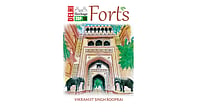India has 21 million unwanted girls and 73 million single women—which in effect means unwanted according to traditional Indian society, especially since the word encompasses unmarried women, divorcees and widows. Being a woman and single is a state of singularity in urban India and that is what Sreemoyee Piu Kundu explores in her Status Single. She starts her narrative from an encounter with a leering customs official who lingers over the single status in her passport. That encounter followed by others in hospitals with nurses who were certain that marriage would improve her health led her on a trail of enquiry—what does it mean to be single in India?
Despite the fact that the marriage rate has dropped and single women are a sizeable proportion of the population, many are unwilling to talk about their status. In a world where the most private things seem to be shared in public, being single appears to be a condition that dictates evasiveness or needs a cure. Although women know they are never accepted as the people they are, they have to go through the superficial motions of conformity if they want a husband. In many cases it causes internal seething and a determination to break free—but it's a hard reality to accept.
Kundu puts 30 as that watershed age at which most women begin to fret about not being part of a couple. Socially acceptable women after all are often mothers by then. There is, she says, a feeling of loneliness and a willingness to acquiesce when parents post pictures on matrimonial sites. They are afraid of being turned into statistics. Add to that the problems created by health and unwanted pregnancy. Today’s woman is far more conscious than yesterday’s spinster, the woman who sat at home and sometimes turned into Jane Austen or Emily Dickinson. The term spinster has been replaced by the politically correct ‘bachelorette’ or the neutral ‘singleton’.
There are a host of terms nowadays that Jane Austen wouldn’t have recognised which have been deftly used in the cover design. Slut, bimbette are a few. Add to those the concepts of slut shaming and body shaming which have come into play. If you show too much skin or dress clingy, you’re a slut and deserve all you get. If you’re overweight or dark that also calls for criticism. And, of course, if you’ve slept with someone before marriage that means no decent man will look at you.
There are examples of women dumped after formal engagements because they were overweight, and one who was married and divorced because she was overweight. There are women from small towns who have come to the big city to experience the new liberal lifestyles and embarked on one-night stands without finding commitment—they’re then forced to settle for arranged marriages and, to cover their ‘immoral’ pasts, have hymen replacement surgery, a Rs 60,000 procedure. Princess Diana’s much-publicised virginity test was splashed all over the media when it took place, proving that the issue wasn’t just an Indian one.
Despite the fact that we now live in the 21st century certain things remain the same—the problems of getting a discreet abortion, for instance, when the female gynaecologist is the first of the judgemental barriers to be overcome. Or bringing up a child without support systems of some kind—preferably male.
Kundu goes from her personal experiences to those of women she interviews, and adds a summing up. She also has chapter headings like From Bechari to Bitch, matching the attitude displayed.
Many of these women despair of ever finding the ‘one’, aware that the older they get, the less likely it seems—though there are cases like that of actress Suhasini Mulay, who married at 60. Some singletons have become cynical through bitter experience, aware that they are regarded as sex objects by men who think they are free to hit on them as and when they please. Single women entrepreneurs are often asked to provide eye candy while working and have only recently begun to speak out.
Status Single flags the experience of the single urban female, the kind of woman who aspires to be a professional and who is active on social media; the feisty woman of substance with a turbo-charged attitude to life. Rural women are not part of the story and may be the makings of another book on the subject, though the status of the rural woman is truly complicated. But then, in the end, the whole debate about being single is huge and will not, one is afraid, be over until the generously curved lady sings.


























